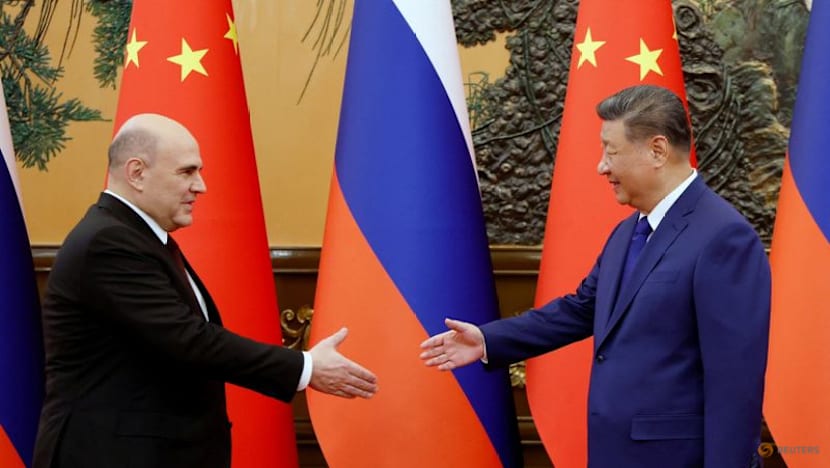China is officially neutral on the war in Ukraine, but it has been crucial in preventing Russia’s international isolation, says international security professor Stefan Wolff.
Considering Chinese President Xi Jinping and his Russian counterpart Vladimir Putin now meet semi-regularly – twice already in 2025 – the annual meetings of their heads of government could be considered fairly unremarkable, routine events. When Prime Minister Mikhail Mishustin visited China on Nov 3 and 4 at the invitation of Premier Li Qiang, it was the 30th iteration of a practice that started in the wake of the dissolution of the Soviet Union.
But since Russia’s full-scale invasion of Ukraine in February 2022, these meetings have taken on a significant degree of geopolitical importance.
Together with the two countries’ interactions in organisations they dominate, like BRICS and the Shanghai Cooperation Organization, the meetings serve as both symbolic reminders and operational enablers of the so-called no-limits partnership between Moscow and Beijing.
US SANCTIONS ON RUSSIAN OIL
Mr Mishustin’s visit to Hangzhou and Beijing, which included an audience with Mr Xi, must be seen in a broader context.

It followed the first United States-China presidential summit of Donald Trump’s second term in office. On Oct 30 in South Korea, Mr Trump and Mr Xi struck a temporary truce in their escalating trade war, climbing down on import tariffs and rare earth export controls.
While the two leaders discussed Ukraine, Mr Trump said that they did not touch on the subject of China buying Russian oil, which has helped fund the Kremlin’s war.
On Oct 23, Mr Trump announced US sanctions on two of Russia’s major oil companies – Rosneft and Lukoil – in a bid to pressure Mr Putin to the negotiating table. Tightening the screws on Russia was a departure from Mr Trump’s approach so far and the sanctions are scheduled to take full effect on Nov 21.
As a result, there have been some indications that state-owned Chinese refineries have begun to unravel at least some of their contracts with Russian suppliers. This may well be enough for Mr Trump to avoid imposing any further secondary sanctions on China which might otherwise undermine his efforts to negotiate a more favourable trade relationship with China.




